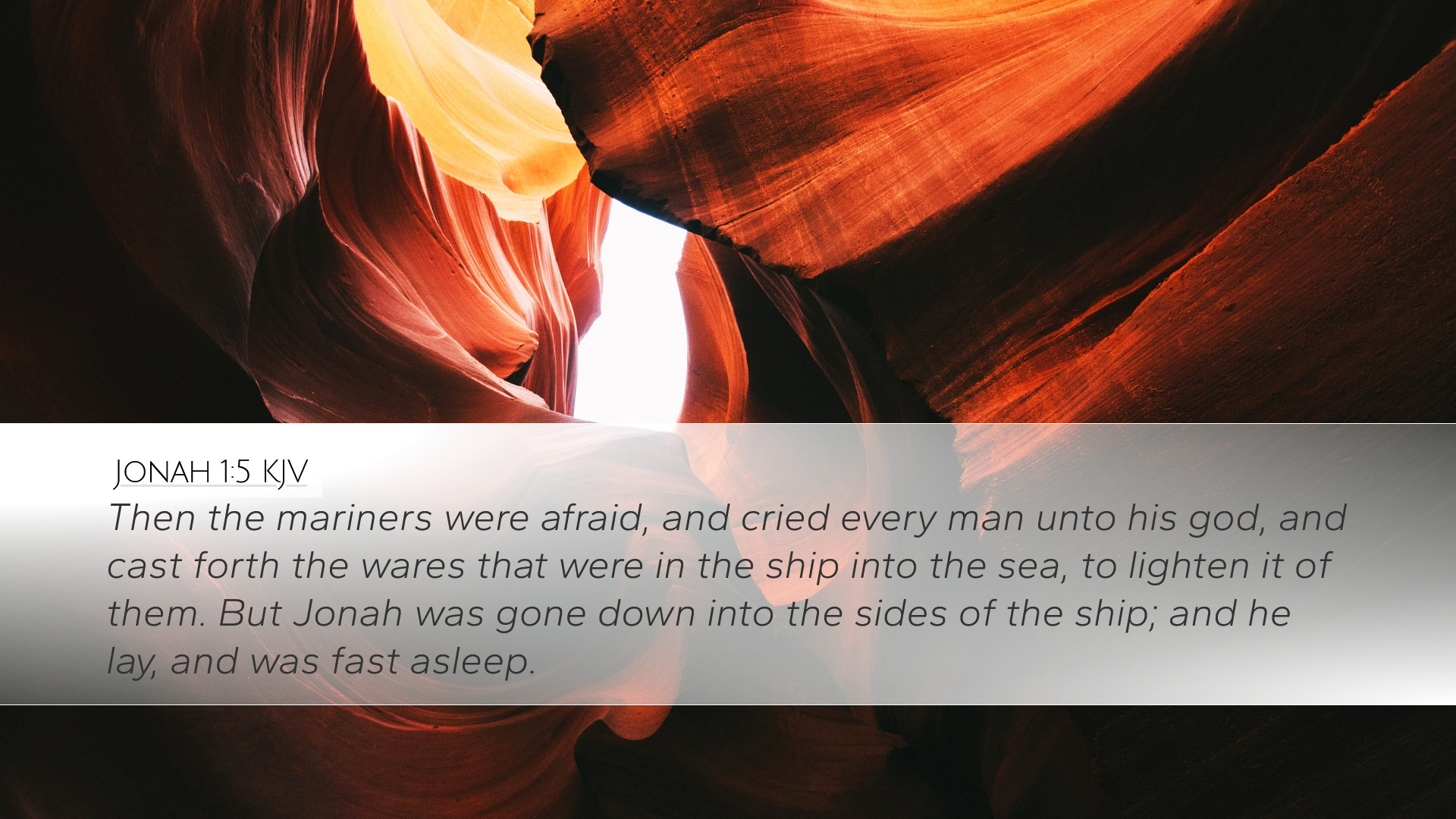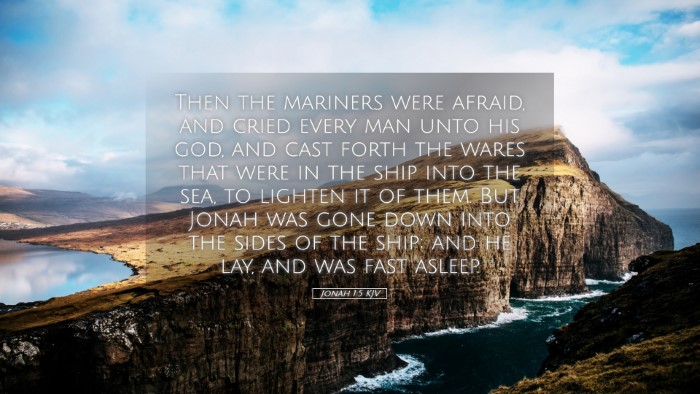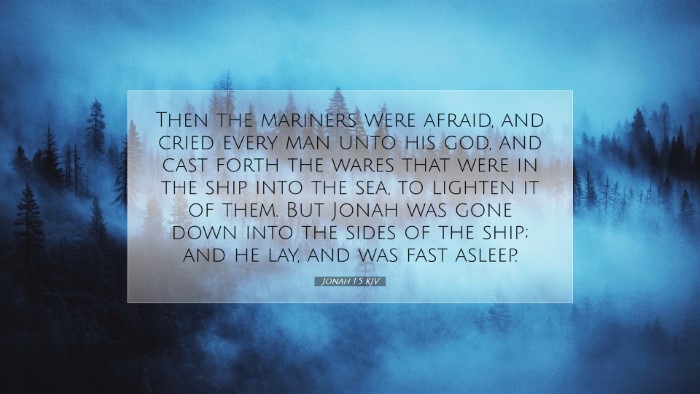Old Testament
Genesis Exodus Leviticus Numbers Deuteronomy Joshua Judges Ruth 1 Samuel 2 Samuel 1 Kings 2 Kings 1 Chronicles 2 Chronicles Ezra Nehemiah Esther Job Psalms Proverbs Ecclesiastes Song of Solomon Isaiah Jeremiah Lamentations Ezekiel Daniel Hosea Joel Amos Obadiah Jonah Micah Nahum Habakkuk Zephaniah Haggai Zechariah MalachiJonah 1:5
Jonah 1:5 KJV
Then the mariners were afraid, and cried every man unto his god, and cast forth the wares that were in the ship into the sea, to lighten it of them. But Jonah was gone down into the sides of the ship; and he lay, and was fast asleep.
Jonah 1:5 Bible Commentary
Commentary on Jonah 1:5
The book of Jonah is a unique prophetic narrative, rich with theological implications and practical lessons. Jonah 1:5 reads: “Then the mariners were afraid, and each cried out to his god. And they hurled the cargo that was in the ship into the sea to lighten it for them. But Jonah had gone down into the inner part of the ship and had lain down and was fast asleep.” This verse encapsulates a moment of great turmoil and contrasts profound human fear with Jonah's deep slumber, shedding light on both the natural and spiritual dimensions of the events unfolding.
Historical and Contextual Background
The narrative of Jonah is set against a backdrop of rebellion, divine calling, and ultimately, mercy. Jonah's call from God to go to Nineveh and proclaim the impending judgment illustrates the universal reach of God's concern for all people—a theme prevalent throughout Scripture. The sailors, being Gentiles, represent those outside the covenant community, thus enhancing the theme of God’s mercy toward all humanity.
Key Themes in Jonah 1:5
- The Fear of the Sailors: The passage opens with the sailors' fear in the face of peril. As Matthew Henry notes, the mariners were seasoned sailors, likely accustomed to treacherous seas; thus, their fear highlights the severity of the storm and signals divine intervention.
- Desperation and Idolatry: Each sailor cried out to his own god, illustrating the common practice of polytheism in the ancient maritime cultures. Albert Barnes points out that in extreme distress, people often turn to their deities, yet their reliance on multiple gods underscores the futility of such worship in the face of the true God’s power.
- Jonah's Complacency: A stark contrast is presented in Jonah’s slumber. Adam Clarke observes that Jonah’s deep sleep symbolizes a profound spiritual indifference and illustrates a prophet in rebellion against God. Even amid chaos, his apathy reveals a disconnect from his divine mission, highlighting the tension between divine obligation and human inclination toward self-preservation.
Textual Analysis
This verse serves as a focal point for several important reflections:
- Human Response to Crisis: The mariners' actions reflect a natural human instinct in times of crisis—insistent prayer and efforts to alleviate their situation. This raises vital questions about the nature of worship and its origins driven by fear.
- Spiritual Apathy vs. Urgency: Jonah's sleep amidst the storm contrasts sharply with the sailors’ urgent pleas, conveying a powerful message about spiritual apathy. As a prophet, Jonah's failure to respond to the crisis reveals a tragic irony; his neglect of God’s call undermines his prophetic role, emphasizing that even the people of God can falter in their responsibilities.
Theological Implications
Jonah 1:5 delves into significant theological implications, touching upon divine sovereignty, human responsibility, and the nature of repentance. The events convey that God's reach extends beyond Israel, as even the unrighteous sailors invoke divine help, hinting at God’s universal grace. Jonah's ill-fated journey serves as both a cautionary tale and an invitation to reflect on our own responses to God's calling.
Conclusion
In summary, Jonah 1:5 captures a moment that contrasts human desperation with prophetic indifference. The reactions of the sailors, steeped in fear and polytheistic worship, compel readers to question the nature of their own worship and resilience in crises. Jonah’s slumber serves as a reminder of the temptations that come with complacency, urging believers to awaken to their spiritual responsibilities. The intersection of fear, faith, and divine call in this passage highlights the richness of God’s mercy and the serious nature of His prophetic mandates.


